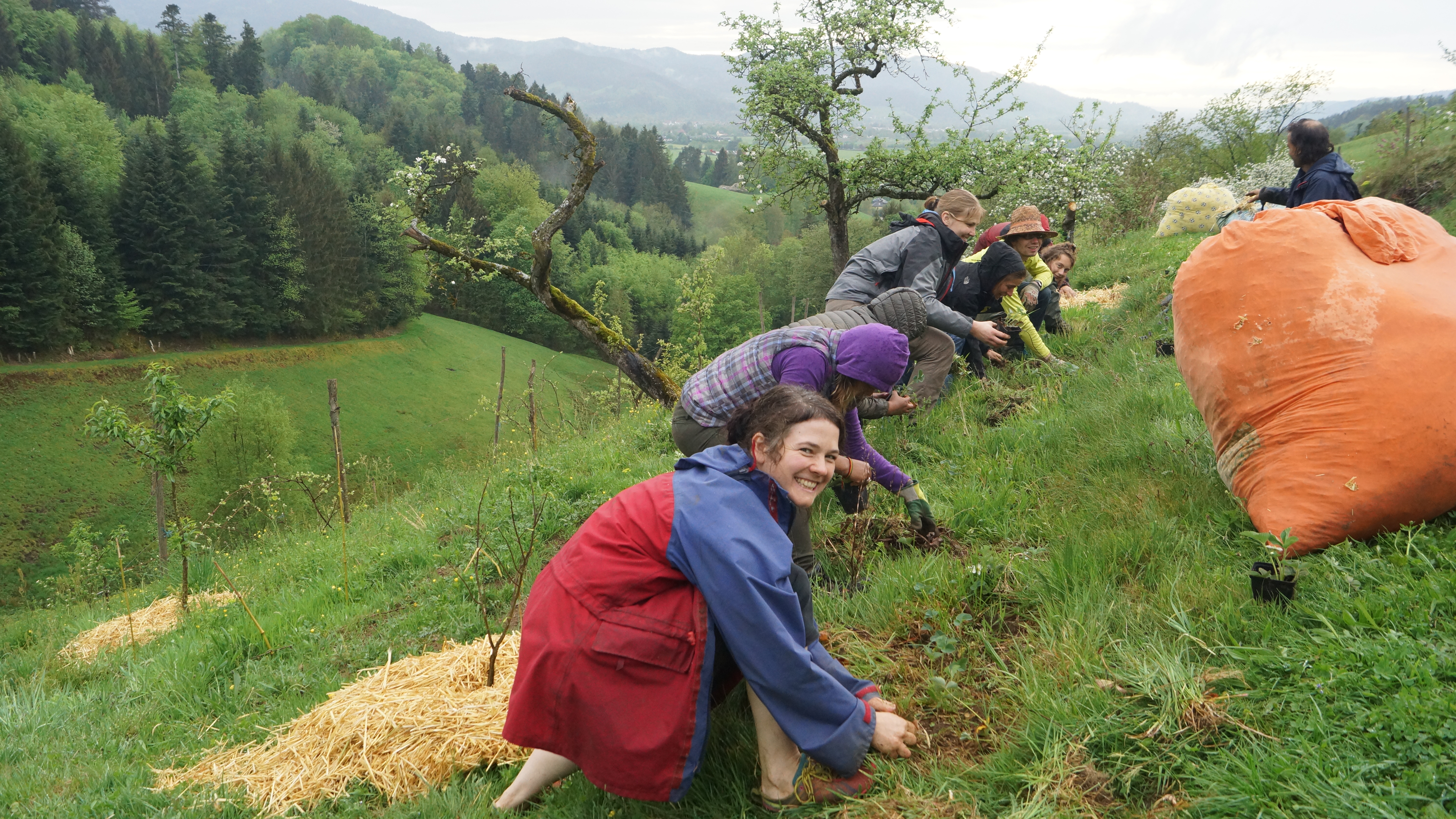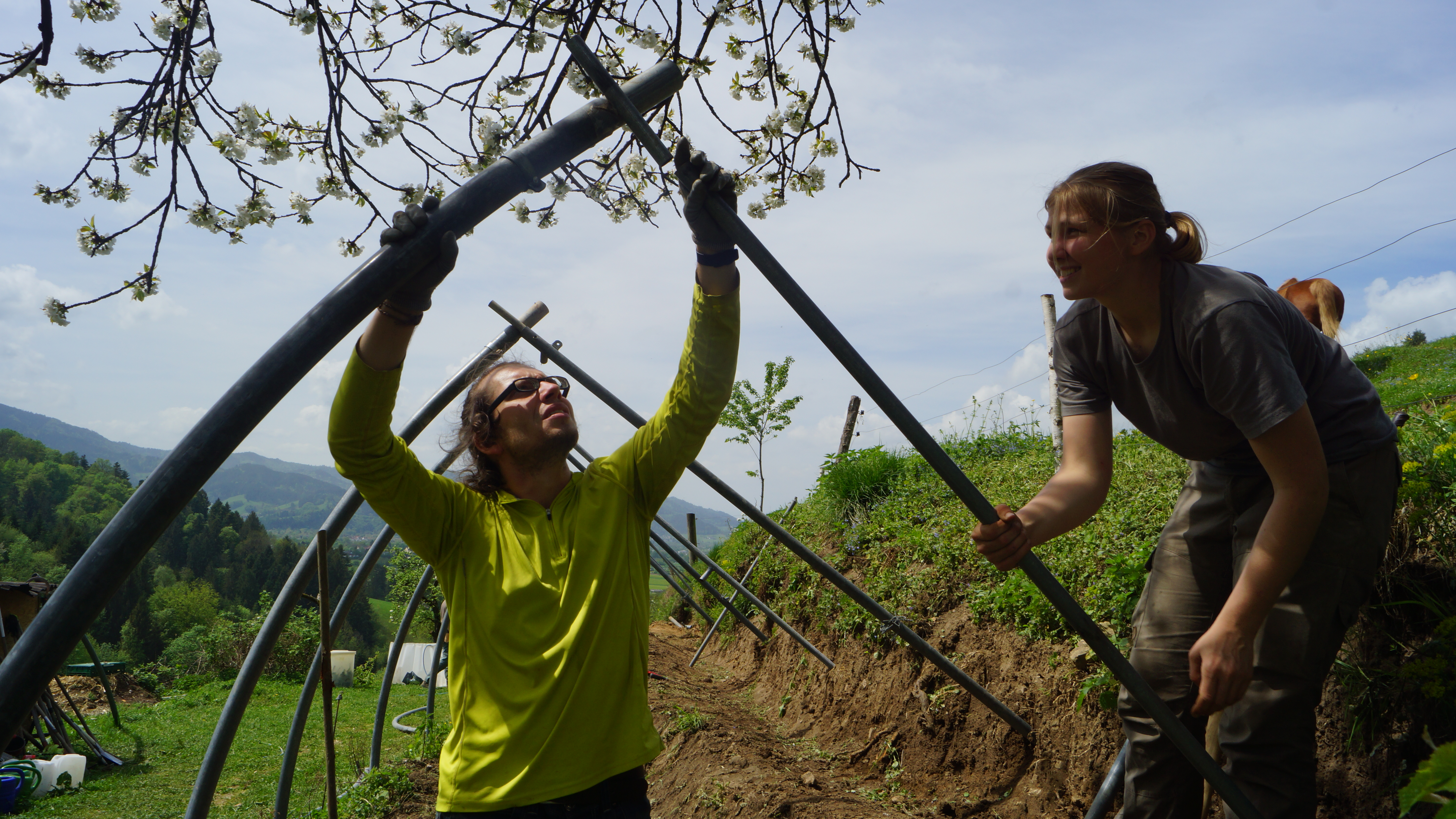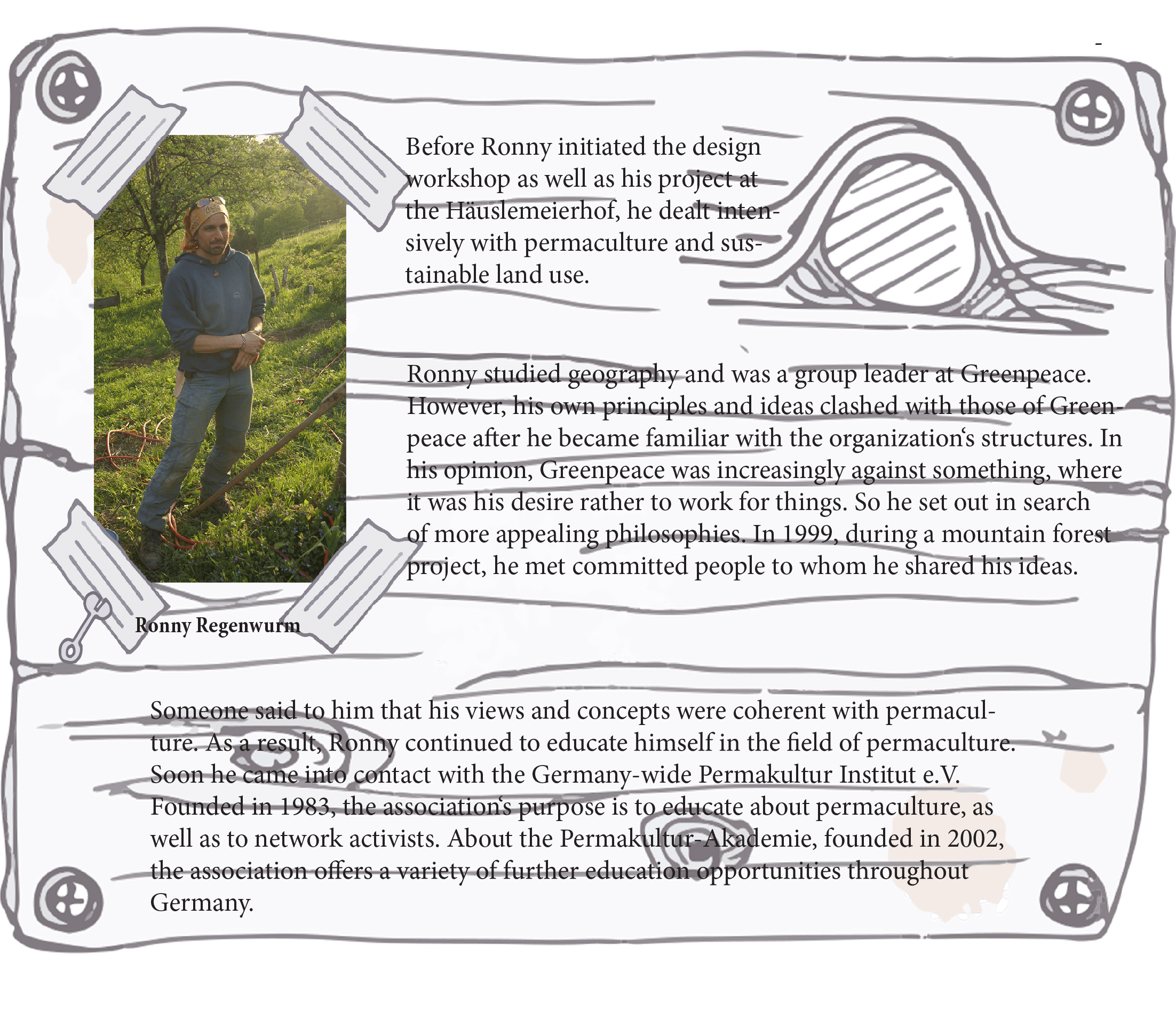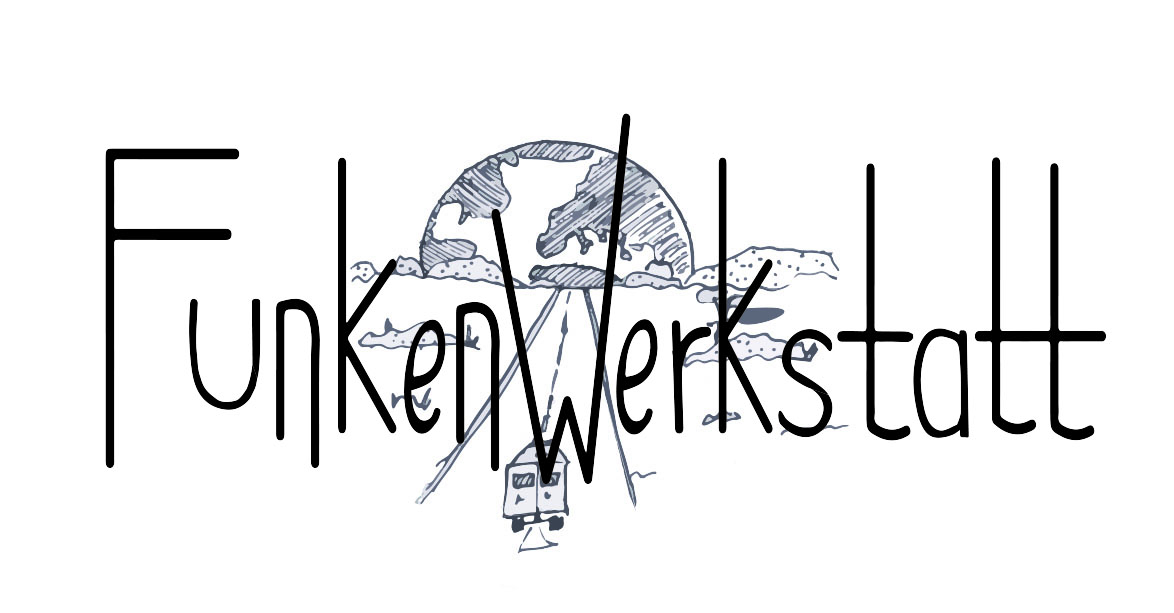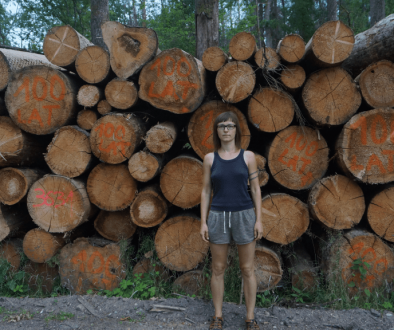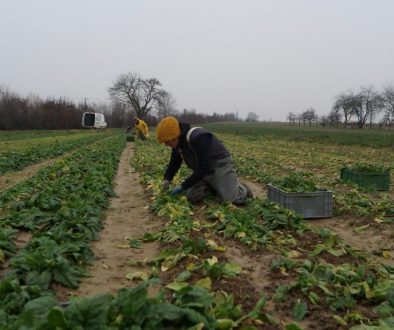Permakultur Dreisamtal

Permaculture-Info
Permaculture means cultivating a lasting culture of various vegetables, herbs and fruits throughout the year. The cultivated varieties should naturally grow in harmony with nature and in interaction with each other. It should be created by various cultivation options and design principles, to get the best conditions for the plants. The permaculture promotes diversity, all proceeds that you throw off are shared fairly and no economic intentions are pursued.
Those who deals more intensively with topics like sustainable
landscape use and horticulture will stumble upon the term „permaculture“
sooner or later.
What exactly permaculture is, what it can do and what rised beds
have to do with ethics, we will describe in more detail below.
We got to know single elements of permaculture for the first time
when we visited the association zusammen leben e.V. They were
integrated into the community garden. Inspired by this approach,
we searched for larger, already established permaculture projects.
Our search led us to Ronny “Regenwurm”, the initiator and project
manager of Permakultur Dreisamtal e.V., with his wonderful
project at the „Häuslemaierhof “.
Originated from a permaculture design course held in 2013 the association Permakultur Dreisamtal e.V. was founded. Part of the course was a workshop initiated by Ronny, in which as an exercise a permaculture regional center on the Häuslemaierhof was planned.
What was conceived in the small groups, in which the farmers also participated, was so convincing that they decided to put the results into practice. The basic idea of permaculture regional centers is to create a place in every region of Germany where permaculture can be viewed, experienced and made accessible to everyone. However, in the case of the Häuslemaierhof, the rapidly growing interest in the project collided with the privacy of the owners so the regional center, was followed up. This so-called „forest garden“ encompasses a wide variety of fruits and vegetables as well as game and crops, which are growing throughout the year.
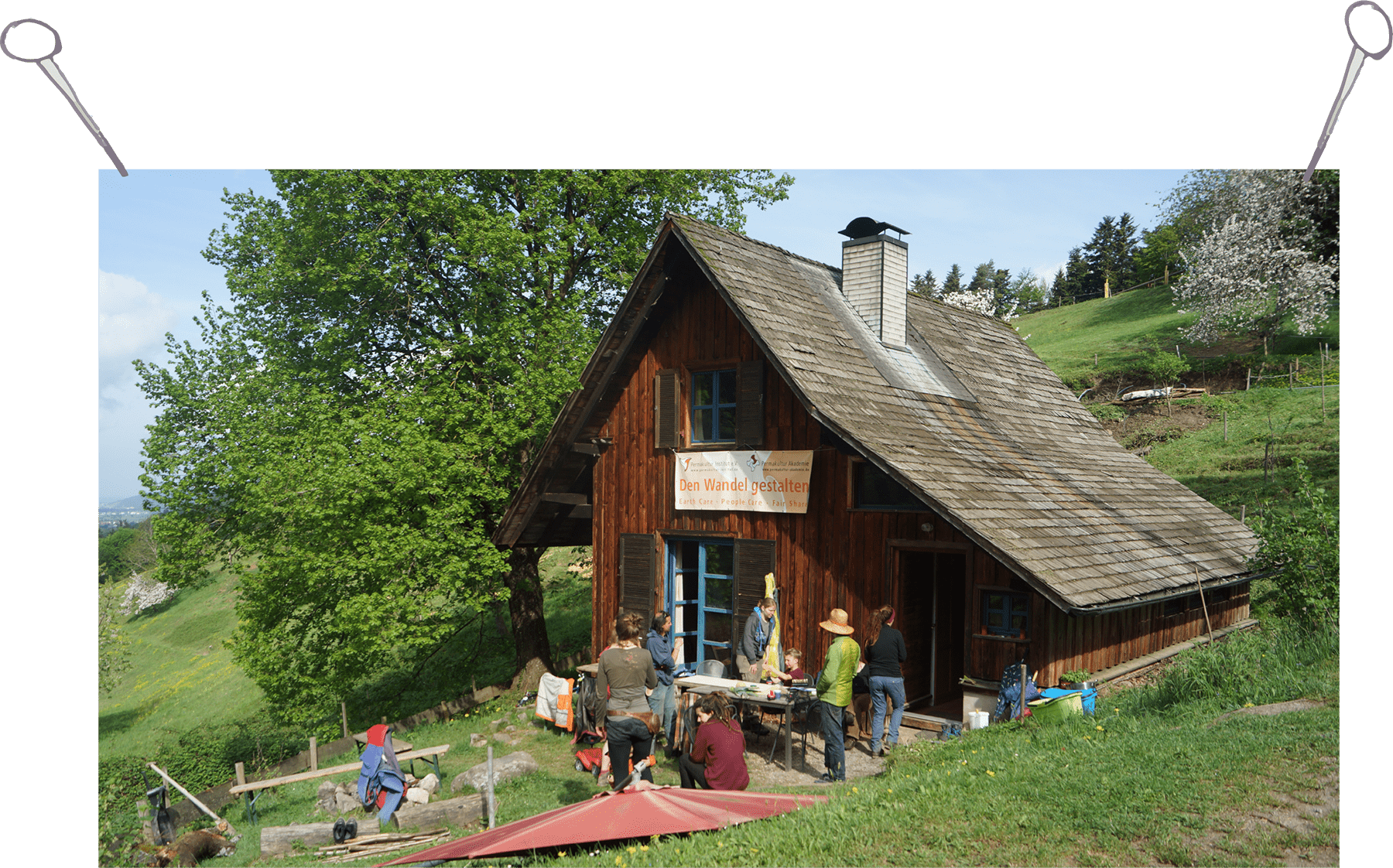
How does permaculture work and what does it do?
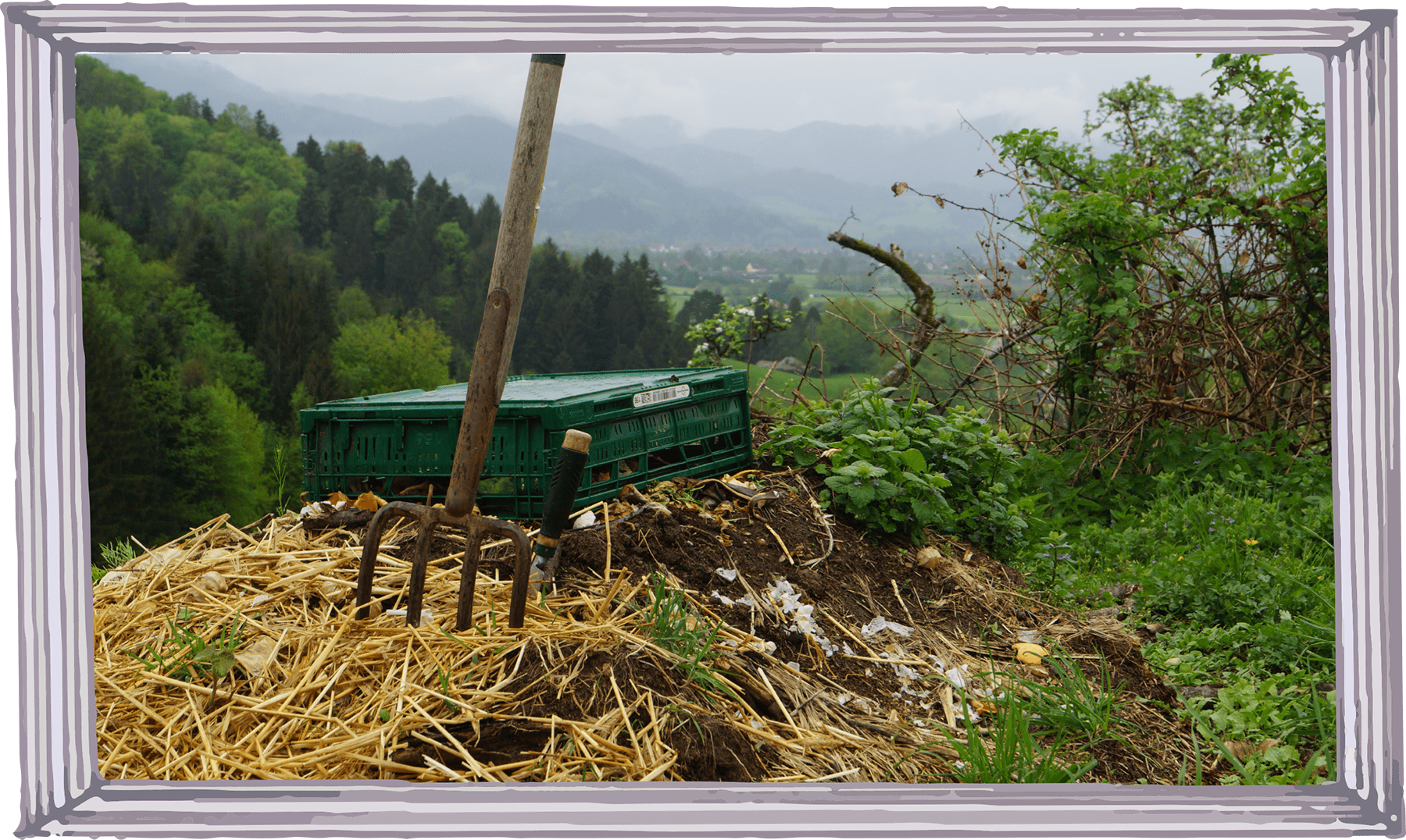
An example of this simplification is the raised bed, Ronny explains. Here, a bed is created
on an artificially created hill which can bring some advantages. On compact, infertile soils with a high clay content, an artificial hill can be used appropriately.
The soil is enriched by the accumulation of dead material, usually mulch or wood, in addition to nutrients. But if these deficiencies are not there, a raised bed would not make sense and would not necessarily be in a permaculture. If no dead wood is present on the site, additional wood procurement would also not be in the
sense of permaculture. „Many people get in contact with permaculture about the idea of the raised bed, as it is something tangible and visible. This often gives the impression that there is such a recipe, that is now permaculture „explains
Ronny. Permaculture is not about individual aspects, but rather about natural cycles, i.e. the linking of individual qualities.
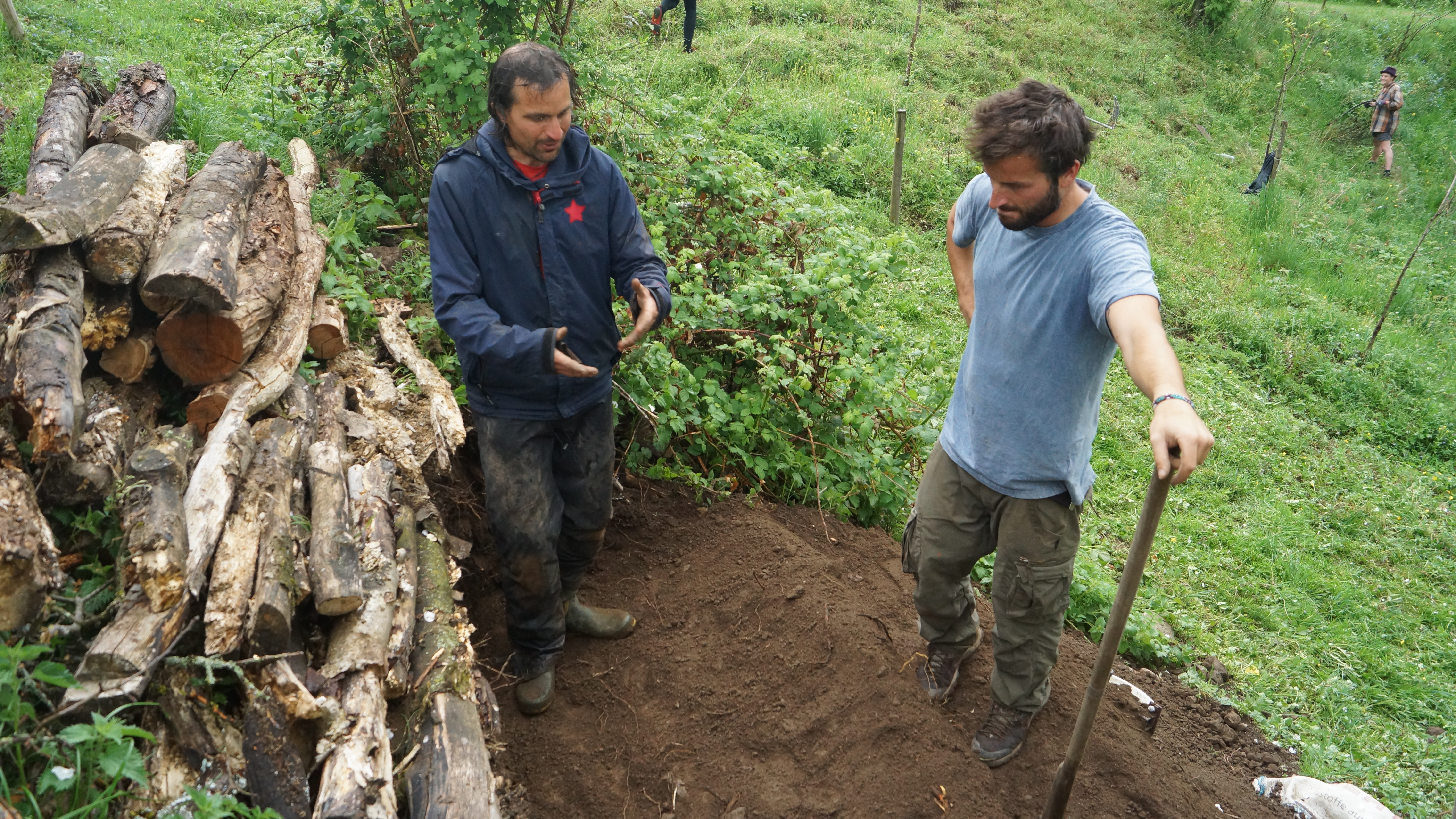
This question is not so easy to answer. Ronny explains us that permaculture is a „design approach to a lasting, living system“.
Like any living system, from the ground up it also has a certain complexity. This makes it difficult to give definitions or „recipes“, what permaculture is and how it works.
It often comes to misunderstandings about what makes a permaculture.
In order to find an introduction to the topic, certain aspects of permaculture are selected and then reduced to these.
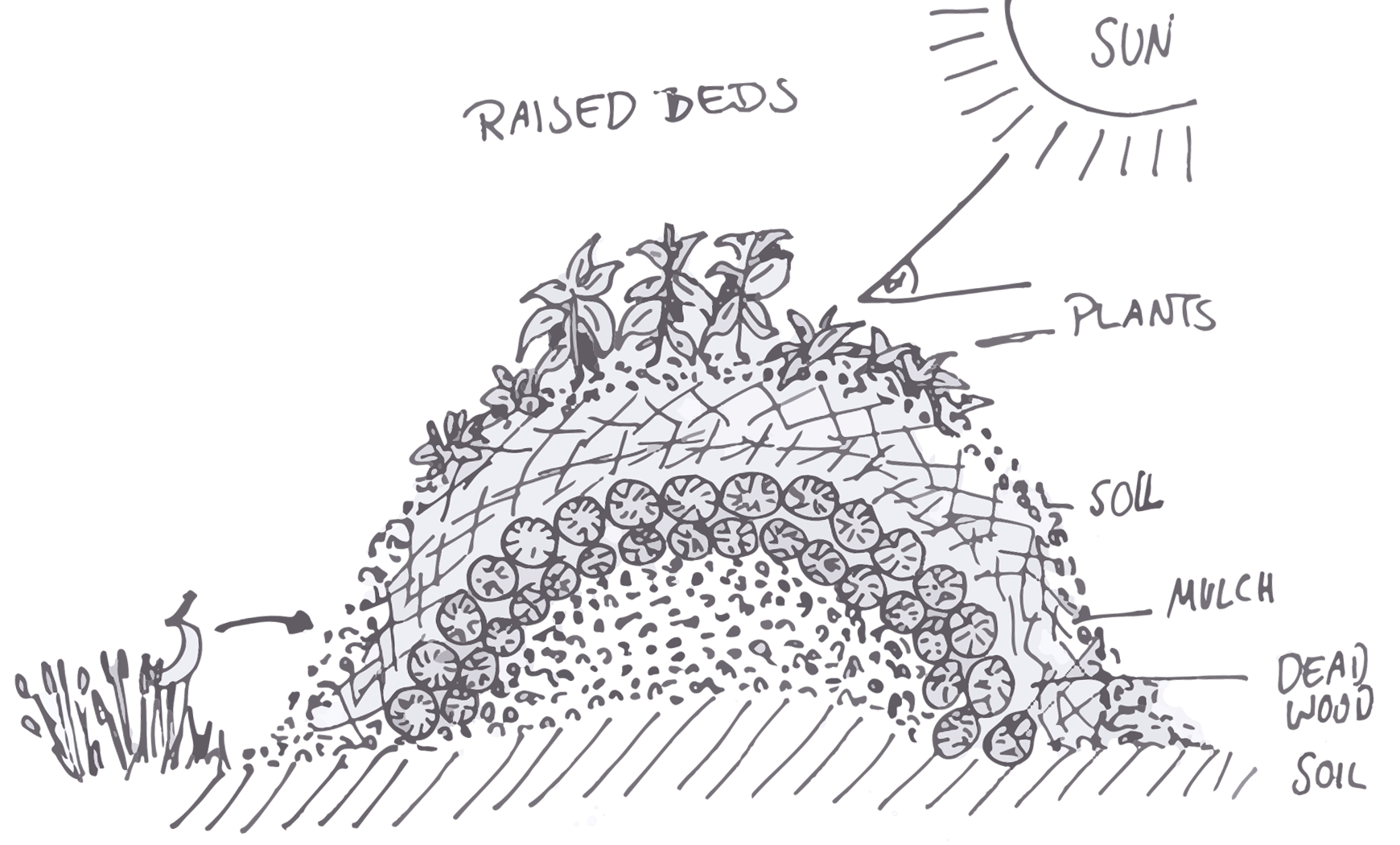
In the case of a raised bed, it is the loose soil that makes a better conversion and decomposition of organic
matter, or the high position of the bed, which ensures more sunlight.
Apart from that, the ethical focus is extremely relevant to dealing with these complex systems, Ronny adds.
A raised bed without meaningful human benefits or fair sharing of resources would therefore not be in the sense of permaculture „. For Ronny, permaculture is an interesting way to move away from product thinking and focuses more on design principles that emphasize quality. However, the theoretical knowledge with which possibilities and methods these qualities are implemented in practice is indispensable.
Bill Mollison, co-founder of modern permaculture, believes that all the world‘s problems could be solved in the garden. We asked Ronny if this would not be a solution to our global problems, such as famine or environmental degradation, if all people had small permacultures.
„We all need small but many of these projects, but we also need to be aware of what is happening on a global scale and what‘s going wrong.“ For Ronny, the approach to self-sufficiency, even with permaculture, is not the right one. Apart from the fact that a pure self-sufficiency is not possible, there is a great danger to separate oneself from the society and to close oneself against the global problems.
„earth care, people care, fair share“
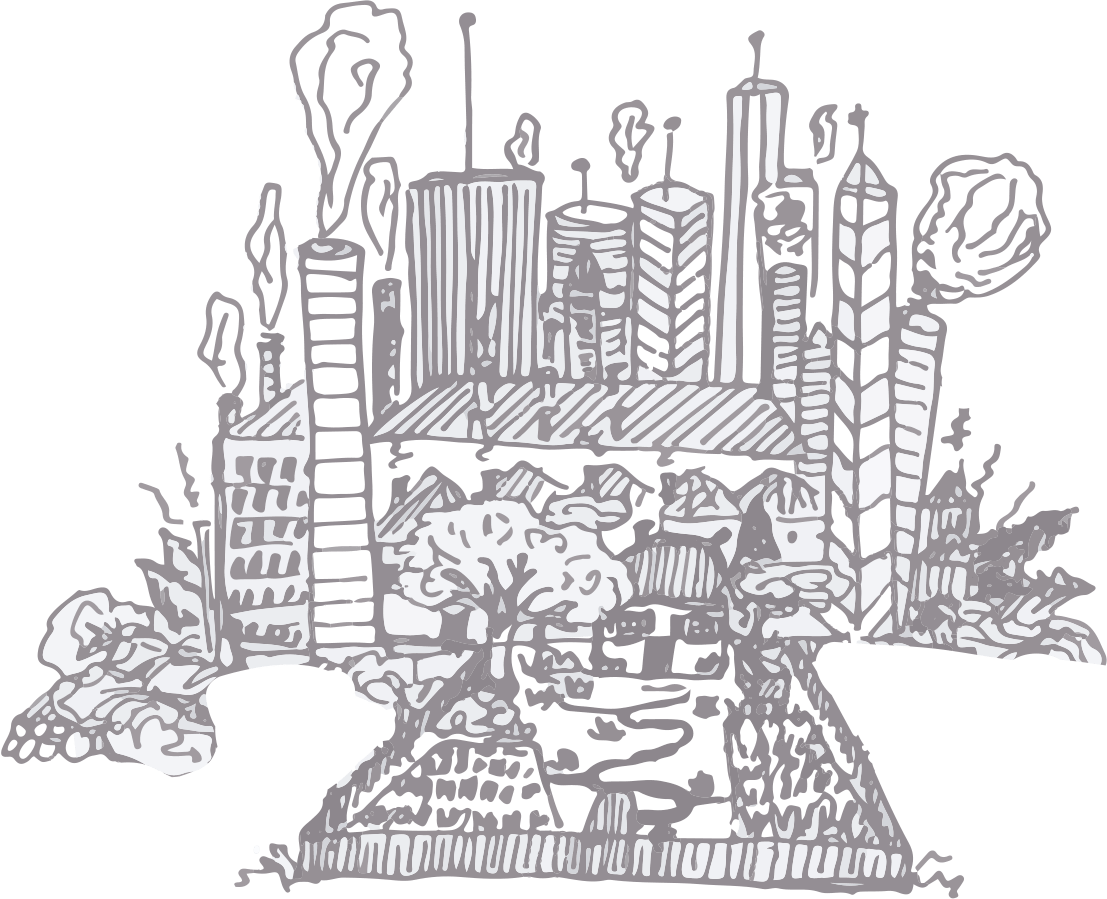
is one of the guiding principles in permaculture. Take care of your environment, take care of your fellow human beings and share with them what you have. This guiding principle, which is also to be understood as an invitation, shows that permaculture pursues equally social and ecological goals. Ronny would add a „yeah“ to „earth care“, „people care“, „fair share“ because „Permaculture should also be fun and understood as a way of life,“ says Ronny.
The Book „The living earth – Conservation Society of New South Wales“, published at Cornell University in 1980, describes the basic principle of a permaculture as, an ecologically, economically and socially sustainable economy with all resources. However, Ronny believes that sustainability alone is no longer enough. „It is important to differentiate between sustainability and future perspectives. The idea of sustainability is basically not to get out of resources in a system, as can regenerate naturally again. Today, but beyond the borders resources are being mined. It should not only be the task to preserve it, but also to build it up so that future generations can continue to cultivate culture.“
A permaculture does not provide any material solutions or recipes to solve the problems of our world. Rather, ethical and philosophical answers are sought, which are intended to significantly change the consciousness of man.

Werkel-Tage
This spring wonderful people gathered for a week at the Häuslemaierhof to awaken the permaculture from their hibernation together. In the process, the infrastructure was repaired again, overgrown paths were newly created, together they cooked organically / ecologically and laughed a lot at the campfire. Beds were rebuilt for planting and crops were freed from weeds. A film tunnel for tomatoes and a rised bed was created, built apiaries and the cutted material was used as mulch, for evaporation protection and erosion protection, and nutrient dispensers for rised beds and Co. reused. At various points where phosphate deficiency exists, urine from the two humus toilets was put on the culture as an important nutrient support. All this happened in just a week. We did not know what to expect when we went to Häuslemaierhof with „Grisu“. It was just a beautiful week in which we all made a lot together and could collect a lot of inspiration. We thank all of you who have been there, and especially Ronny, for all the beautiful insights and knowledge enrichment you have given us.
